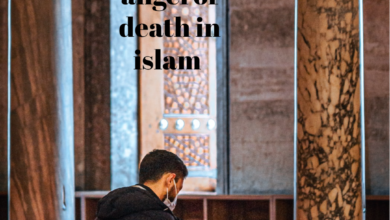Analyzing the different themes in Surah Fajr

Introduction
Surah Fajr, also known as “The Dawn” or “The Daybreak,” is the 89th chapter of the Holy Quran. Comprising of 30 verses, this surah holds profound significance for Muslims worldwide. Like every chapter in the Quran, Surah Fajr carries unique themes and lessons that serve as a source of guidance and inspiration for believers. In this article, we delve into the various themes present in Surah Fajr and explore the spiritual insights they offer.
Divine Oaths and Admonitions:
The Surah commences with a series of divine oaths, where Allah (God) swears by the dawn, ten nights, the even and the odd, and the departing night. Through these oaths, Allah emphasizes His power and might, urging humanity to reflect on the natural phenomena and the wonders of the universe as signs of His existence.
Warning from Past Nations:
Surah Fajr recounts the destruction of the people of ‘Ad, Thamud, and the Pharaoh, all of whom were arrogant and disobedient to their respective prophets. By narrating these historical events, the Surah serves as a reminder of the consequences that befall those who reject divine guidance and indulge in corruption and arrogance.
Reflection on the Self:
The Surah prompts introspection by questioning mankind regarding their feelings of security in their possessions and worldly life. It reminds us that material wealth and power are fleeting and can vanish at any moment. True security lies in the remembrance and obedience of Allah.
The Great Loss:
Surah Fajr emphasizes the magnitude of loss incurred by those who neglect their prayers, specifically the Fajr prayer, which is the dawn prayer. Neglecting this crucial act of worship indicates a lack of commitment and devotion to Allah, leading to spiritual loss and alienation from divine blessings.
The Rewards of the Righteous:
On the other hand, the Surah celebrates the rewards reserved for the righteous and pious individuals who uphold their prayers and strive to please Allah. These rewards are not just confined to the Hereafter but also manifest in the form of contentment, peace, and blessings in their worldly life.
Gratitude and Generosity:
Surah Fajr emphasizes the importance of gratitude and generosity. It highlights the ingratitude of the people of ‘Ad, who were blessed with numerous provisions but turned away from their Creator. Through this, the Surah encourages believers to be thankful for the blessings bestowed upon them and to share their wealth and resources with those in need.
Recognition of the Day of Judgment:
The Surah powerfully asserts the concept of the Day of Judgment and the accountability of actions. It cautions that just as the disbelievers and wrongdoers of the past faced divine retribution, a day will come when all individuals will be held accountable for their deeds.
The Role of Prophets:
Surah Fajr acknowledges the importance of prophets and messengers sent by Allah to guide humanity. It highlights the divine wisdom behind their selection and the crucial role they play in conveying the message of truth and justice to the people.
In conclusion,
Surah Fajr encapsulates various themes that resonate with the human experience, emphasizing the significance of faith, gratitude, and accountability. Through divine oaths, historical reminders, and warnings, the Surah calls upon believers to recognize the transient nature of worldly pursuits and focus on strengthening their relationship with Allah. By understanding and implementing the lessons from Surah Fajr, Muslims can enhance their spiritual journey, seeking salvation in this life and the Hereafter.






